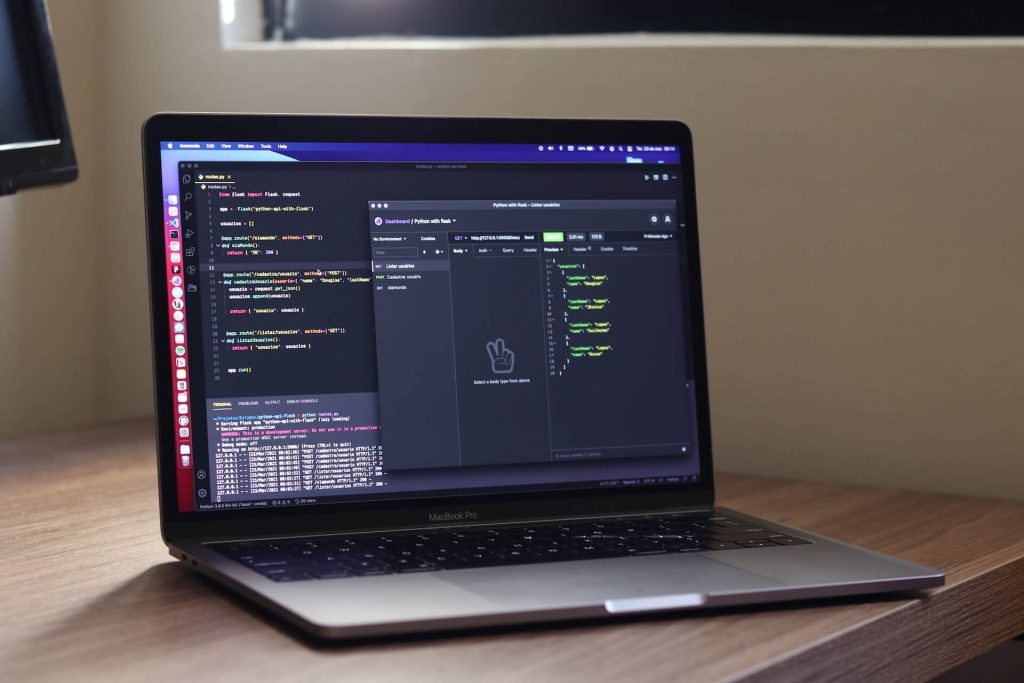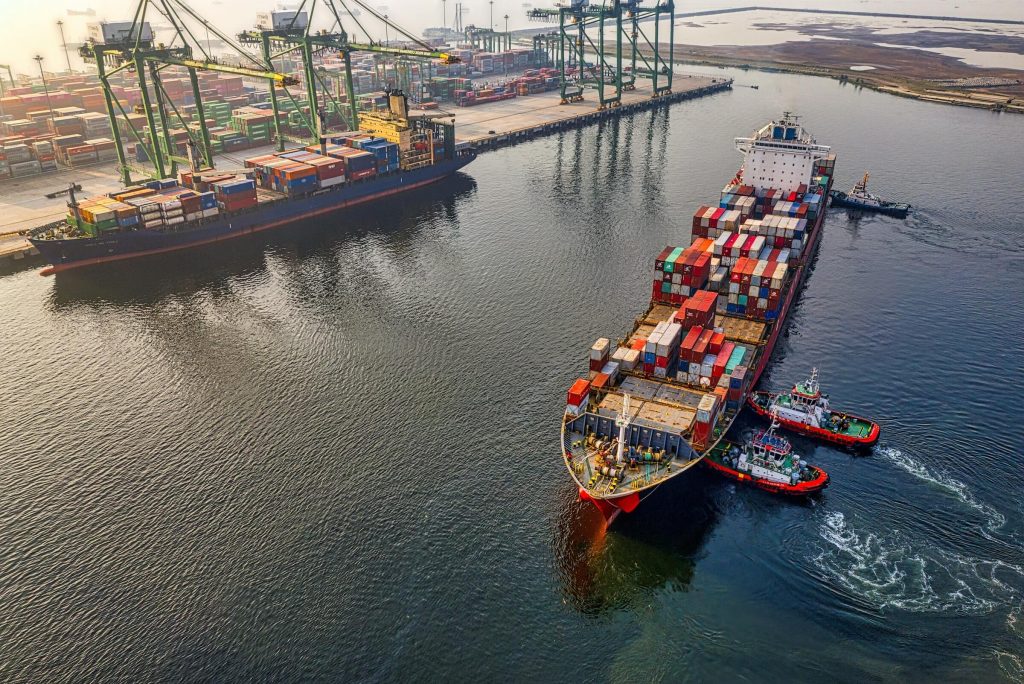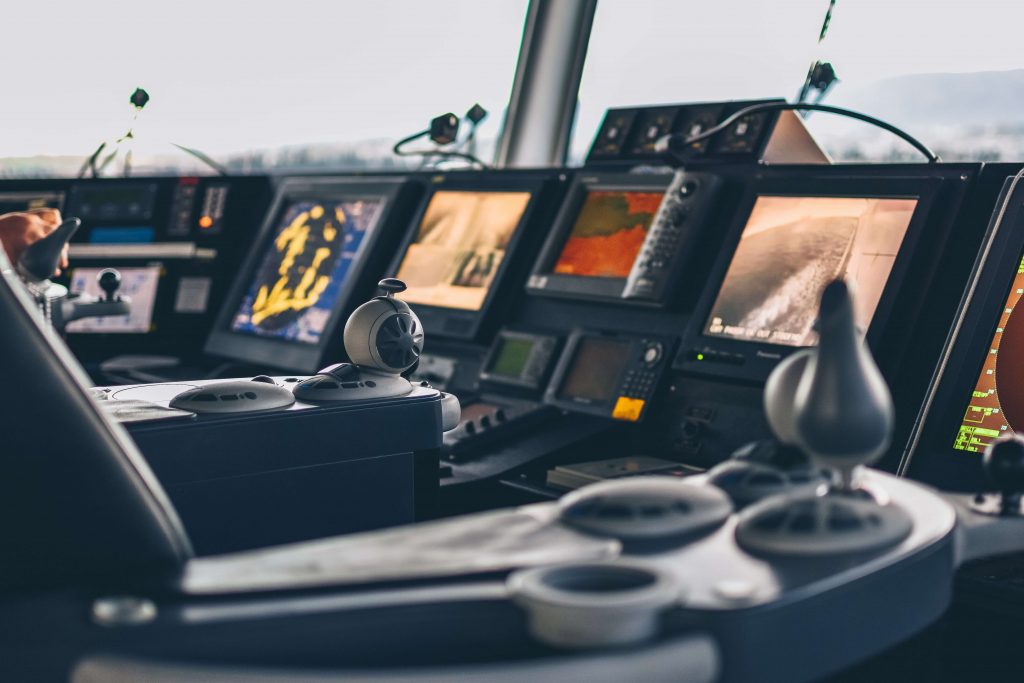Join our Mailing List to hear more!
Join the mailing list to hear updates about the world or data science and exciting projects we are working on in machine learning, net zero and beyond.

At SeerBI, we are committed to developing innovative NLP solutions for the maritime industry. Our team of experts has years of experience in developing and implementing NLP solutions for a variety of industries, and we are now applying this expertise to the maritime sector.
Our NLP solutions are designed to address the specific challenges of the maritime industry, such as communication between ships and ports, predicting vessel behavior, enhancing search and rescue operations, improving cargo management, and enhancing regulatory compliance.
By using advanced NLP algorithms and techniques, we are able to extract valuable insights from unstructured data, such as emails, voice recordings, and other forms of communication. In this blog post we will be exploring a few of these NLP applications.

Automating communication between ships and ports can be a game-changer for the maritime industry. Currently, communication between ships and ports is often slow and inefficient, and is prone to errors due to misinterpretation of messages or language barriers. This can result in delays, increased costs, and potential safety hazards.
NLP can help to address these challenges by automating the communication process. By using advanced algorithms and techniques, NLP can analyze the content of messages, extract relevant information, and respond automatically. This can significantly reduce the need for human intervention, saving time and reducing the risk of errors.
For example, imagine a ship approaching a port and sending a message to the port authorities to request permission to enter. Using NLP, the message can be automatically analyzed and relevant information extracted, such as the ship’s name, location, and ETA. The port authorities can then respond automatically, providing the necessary permissions or requesting further information if required. This can significantly reduce the time and effort required for communication between ships and ports, improving efficiency and reducing the risk of errors.
Furthermore, NLP can also help to address language barriers, which can be a significant challenge in the maritime industry. By using NLP to automatically translate messages, ships and ports can communicate more easily, even if they speak different languages. This can help to improve safety and efficiency, as well as reduce the risk of misunderstandings and errors.

Predicting vessel behavior is a critical aspect of maritime operations, as it can help optimize shipping routes, reduce fuel consumption, and improve safety. However, predicting vessel behavior is a complex task that requires analyzing large amounts of data from multiple sources, including ship sensors, weather forecasts, and sea conditions. This is where NLP comes in.
NLP can be used to analyze the vast amounts of data generated by ships and other sources and extract key insights that can be used to predict vessel behavior. By using advanced algorithms and machine learning techniques, NLP can identify patterns and trends in the data that may not be immediately apparent to humans.
Once these patterns and trends have been identified, they can be used to build a model that can predict a ship’s behavior with a high degree of accuracy. This information can then be used to optimize shipping routes, reduce fuel consumption, and improve safety. For example, by predicting when a ship is likely to encounter rough seas, it may be possible to adjust its course to avoid these conditions, reducing the risk of damage or loss of cargo.

When it comes to search and rescue operations at sea, every second counts. In emergency situations, such as a ship in distress, it is critical to quickly locate the vessel and understand the nature of the emergency. This is where NLP can make a significant impact.
NLP algorithms can be used to analyze distress calls and other messages from ships in distress to extract key information. This information can include the location of the vessel, the nature of the emergency, the number of crew members on board, and other critical details. By analyzing this information quickly and accurately, rescue teams can be dispatched more quickly and efficiently, potentially saving lives.
In addition to analyzing distress calls and messages, NLP can also be used to monitor social media and other online platforms for information related to maritime emergencies. For example, if a passenger on a cruise ship posts a distress call on social media, NLP algorithms can be used to identify the location of the ship and the nature of the emergency, which can then be used to dispatch rescue teams more quickly.

Cargo management is a crucial aspect of the maritime industry, and it can have a significant impact on a company’s bottom line. With the help of NLP, cargo management can be improved in several ways.
One of the key benefits of using NLP for cargo management is the ability to analyze shipping manifests and other documents to identify patterns and trends in cargo movements. This information can be used to optimize cargo loading and unloading, reducing turnaround times and improving efficiency. For example, if an NLP system detects that certain types of cargo are frequently shipped together, this information can be used to ensure that those items are loaded onto the same ship, reducing the need for multiple transfers and improving turnaround times.
NLP can also be used to identify potential bottlenecks in the cargo management process. By analyzing data from various sources, such as shipping manifests, schedules, and port capacity, an NLP system can identify areas where congestion is likely to occur. This information can then be used to develop contingency plans and optimize the flow of cargo, reducing the risk of delays and improving efficiency.
Another way in which NLP can improve cargo management is by analyzing data from sensors and other devices on board ships. By combining this data with other sources of information, such as weather forecasts and sea conditions, it is possible to develop more accurate and efficient shipping routes. This can help to reduce fuel consumption and other costs, as well as improving safety.

Ensuring regulatory compliance is a critical aspect of the maritime industry. Failure to comply with regulations can result in serious consequences, including hefty fines, loss of business reputation, and even criminal charges. With the help of NLP, companies in the maritime industry can automate and streamline the regulatory compliance process, making it easier to identify and address potential risks.
NLP can help maritime companies to analyze large volumes of regulatory documents and identify key requirements and obligations. By using machine learning algorithms and natural language processing techniques, NLP can extract important information from unstructured data, such as legislation, guidelines, and industry standards. This can save companies a significant amount of time and resources, as they no longer have to manually sift through large amounts of regulatory documentation.
Once the key requirements and obligations have been identified, NLP can be used to monitor and ensure compliance. For example, companies can use NLP to analyze shipping logs, invoices, and other data sources to ensure that they are meeting their regulatory obligations. This can help to reduce the risk of non-compliance and minimize the likelihood of fines and other penalties.
In addition to automating compliance, NLP can also help to improve transparency and accountability. By using NLP to analyze data, companies can identify areas of non-compliance and take corrective action to address these issues. This can help to improve public trust and confidence in the industry, as well as support a culture of compliance and ethical behavior.

As mentioned earlier, SeerBI is a leading provider of NLP solutions for the maritime industry, providing NLP solutions for our clients such as Casper Group and COG Legal, with a deep understanding of the specific challenges and requirements of this important sector. Our advanced NLP algorithms and techniques can be applied to a variety of use cases, including automating communication, predicting vessel behavior, enhancing search and rescue operations, improving cargo management, and enhancing regulatory compliance.
In conclusion, SeerBI’s NLP solutions can help the maritime industry unlock the full potential of NLP technology to improve efficiency, safety, and profitability. By leveraging our expertise and advanced algorithms, shipping companies and ports can benefit from innovative solutions that meet their specific needs and requirements. Contact us today to learn more about how our NLP solutions can help transform your operations.
Join the mailing list to hear updates about the world or data science and exciting projects we are working on in machine learning, net zero and beyond.
Fill in the form below and our team will be in touch regarding this service
07928510731
[email protected]
Victoria Road, Victoria House, TS13AP, Middlesbrough